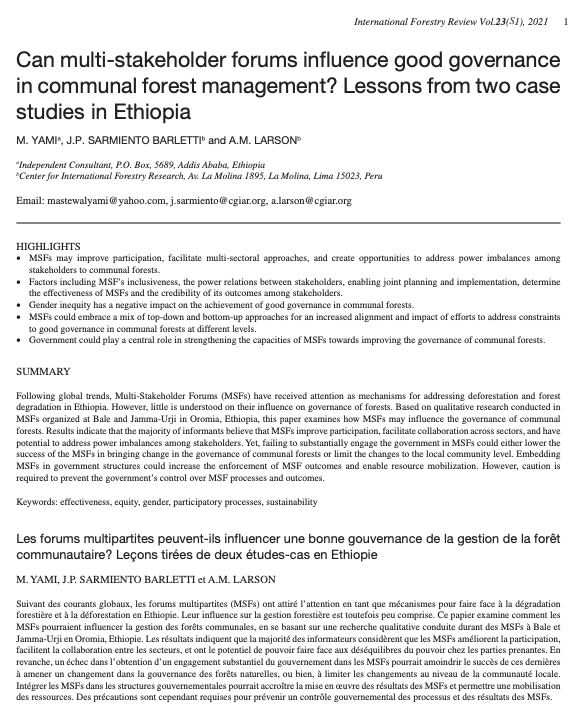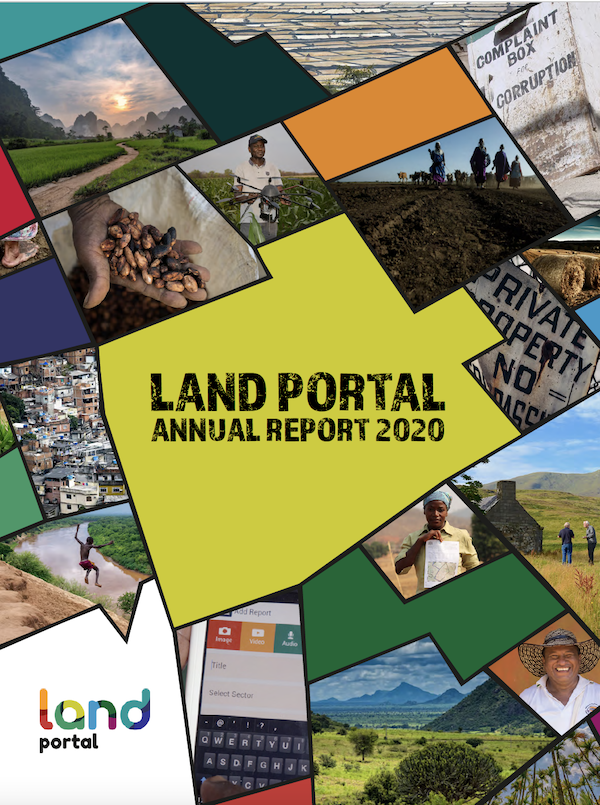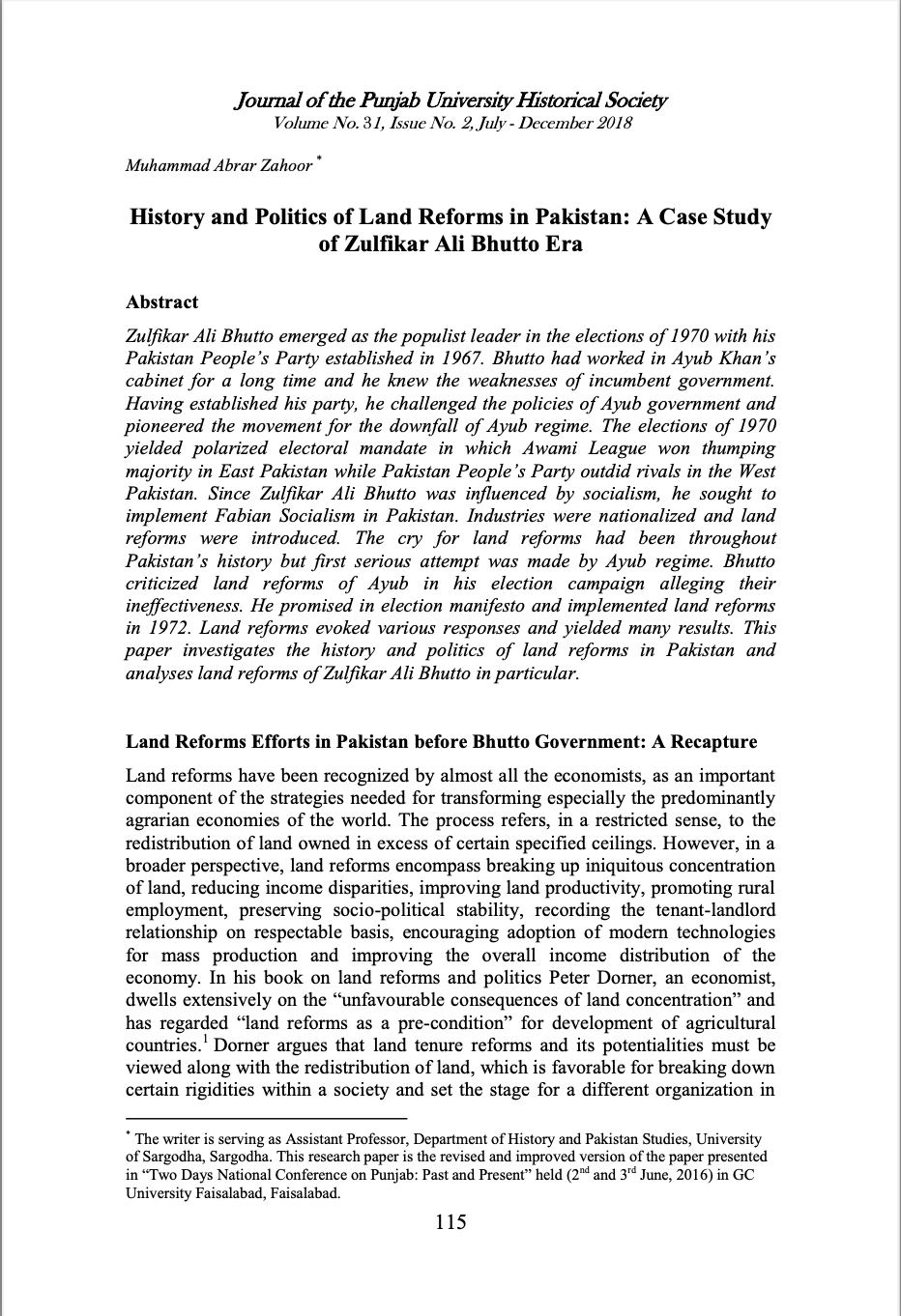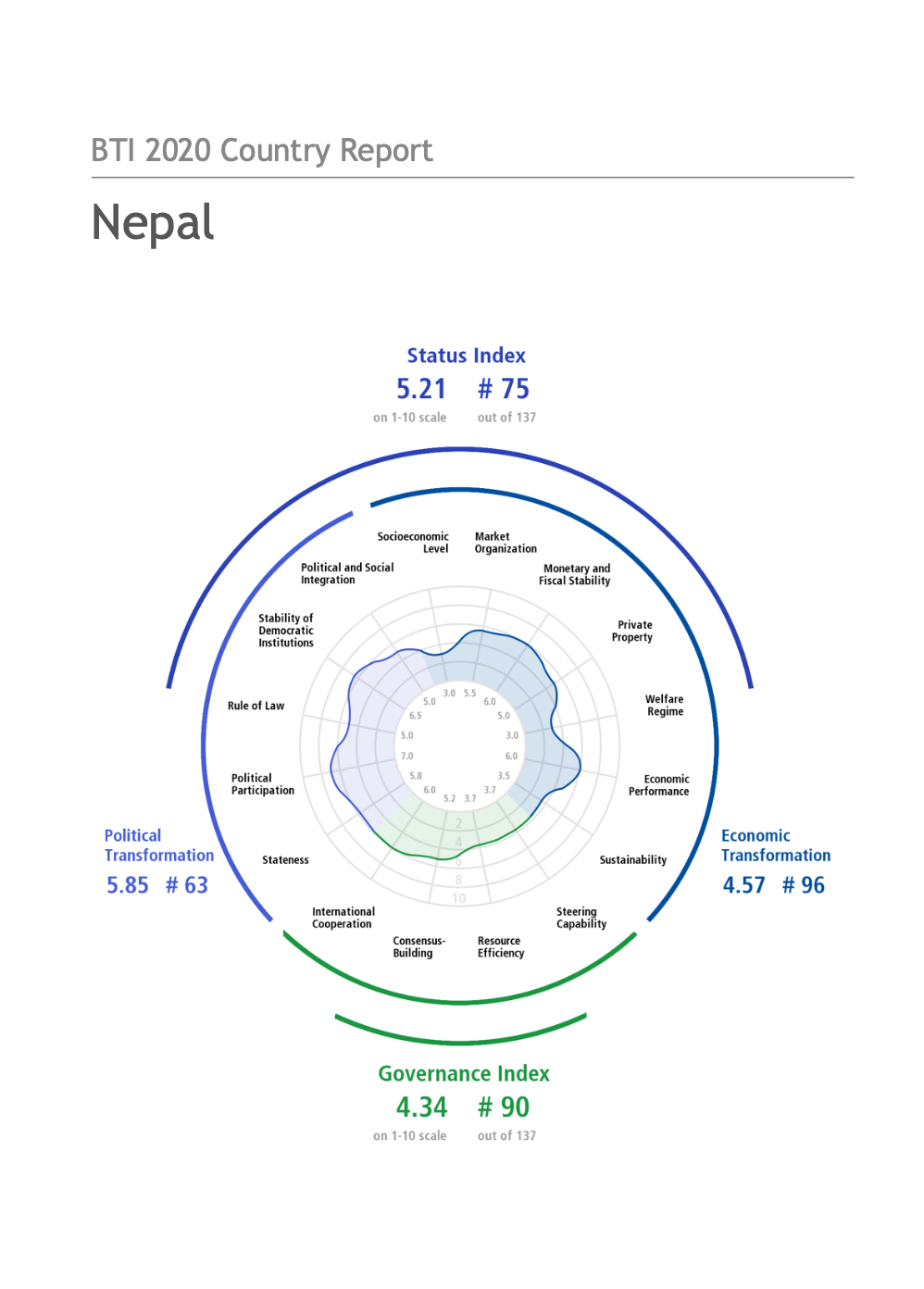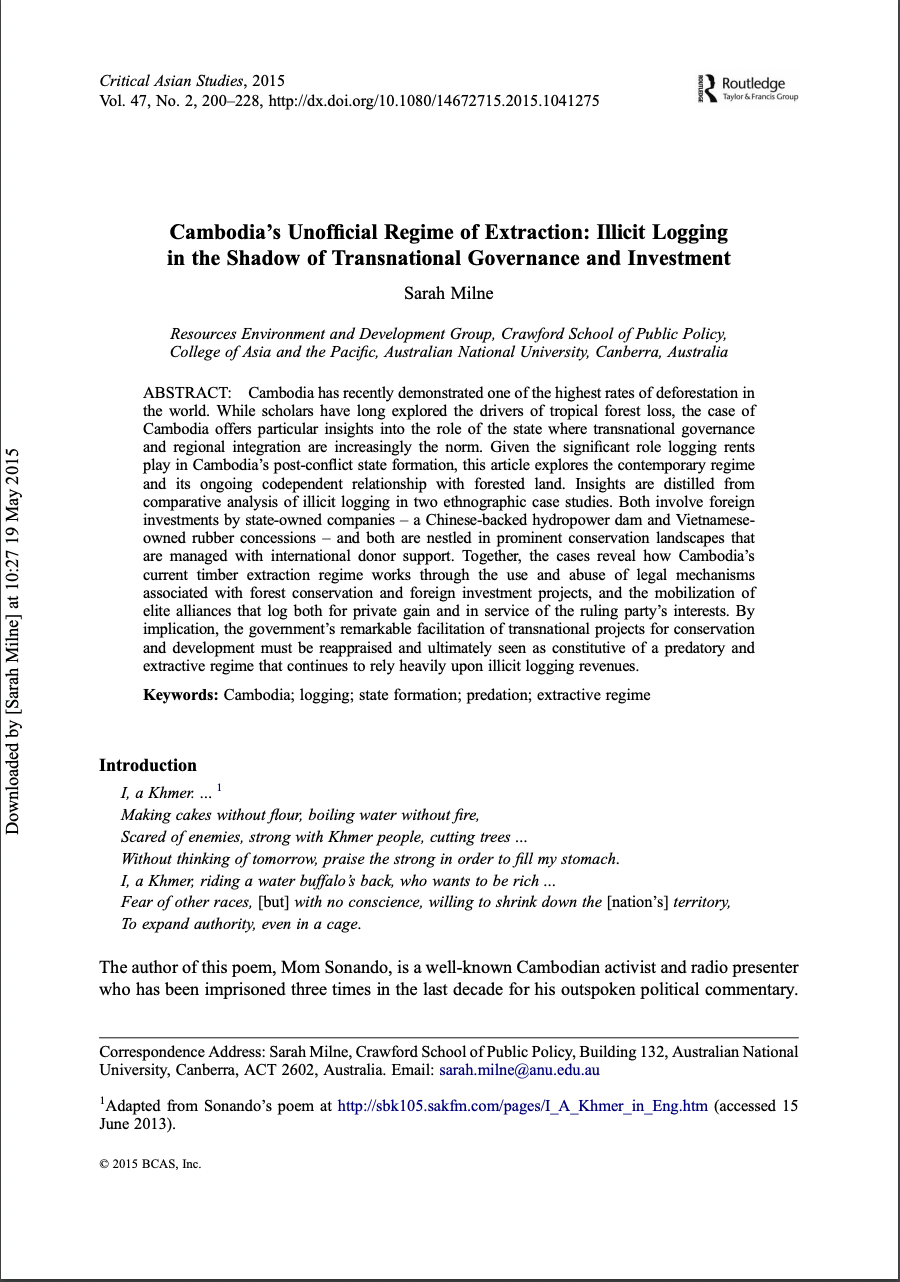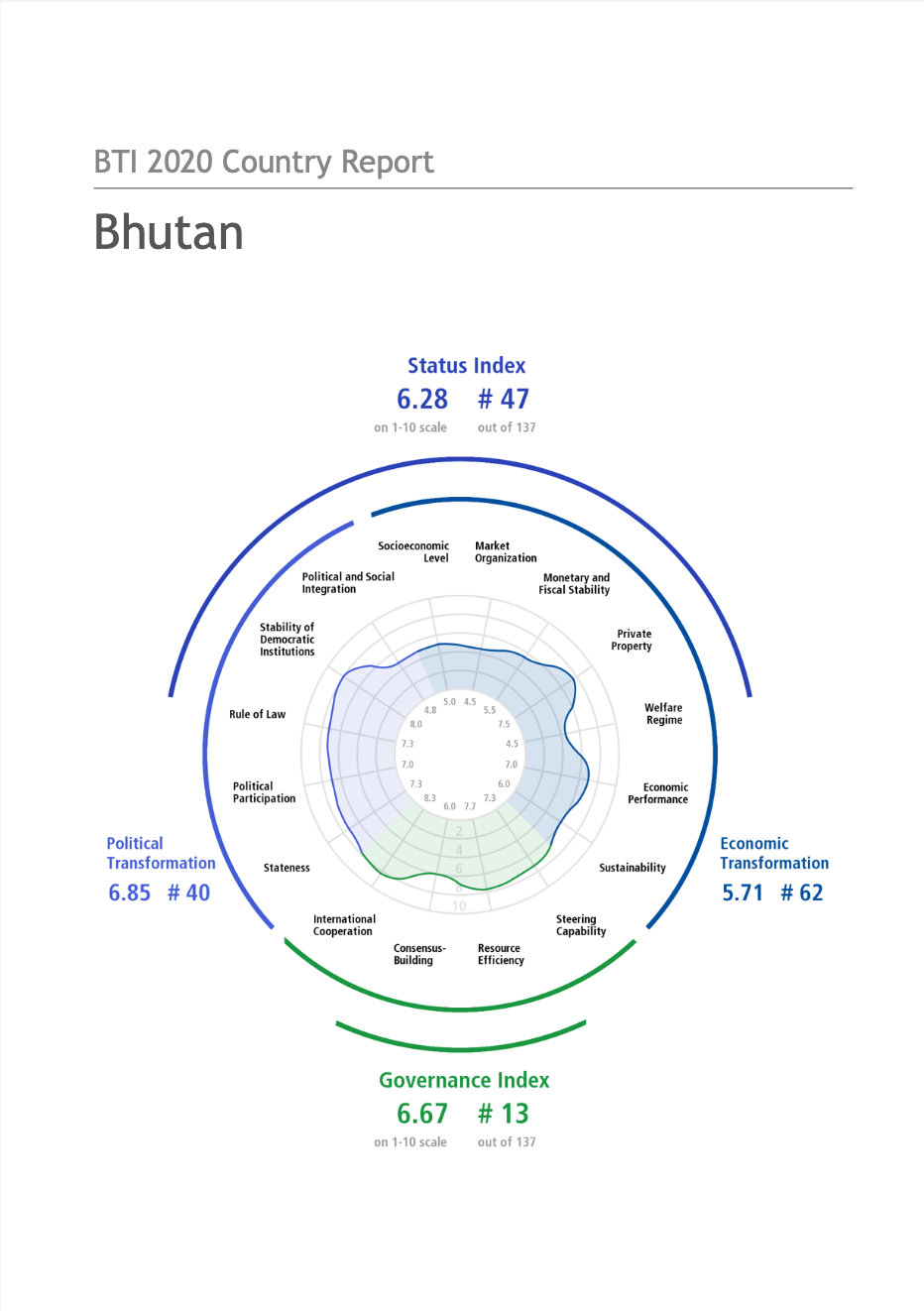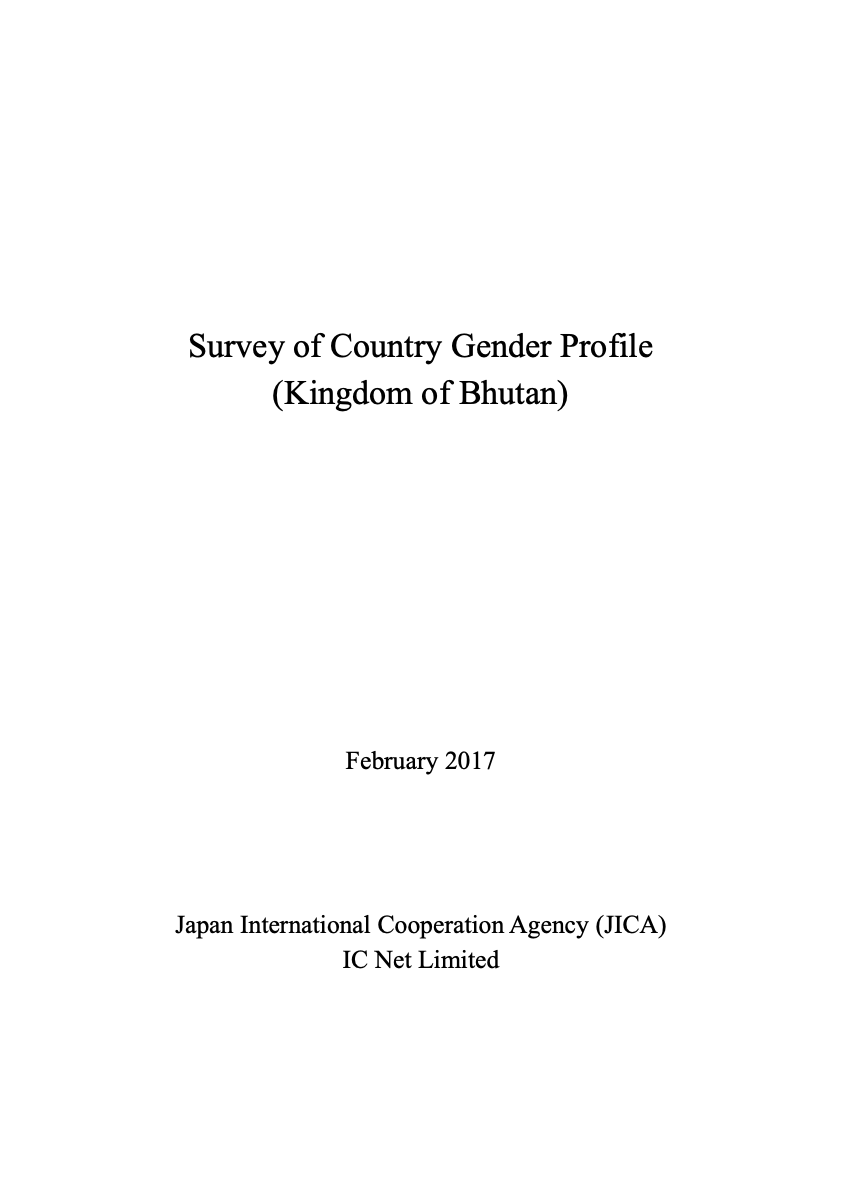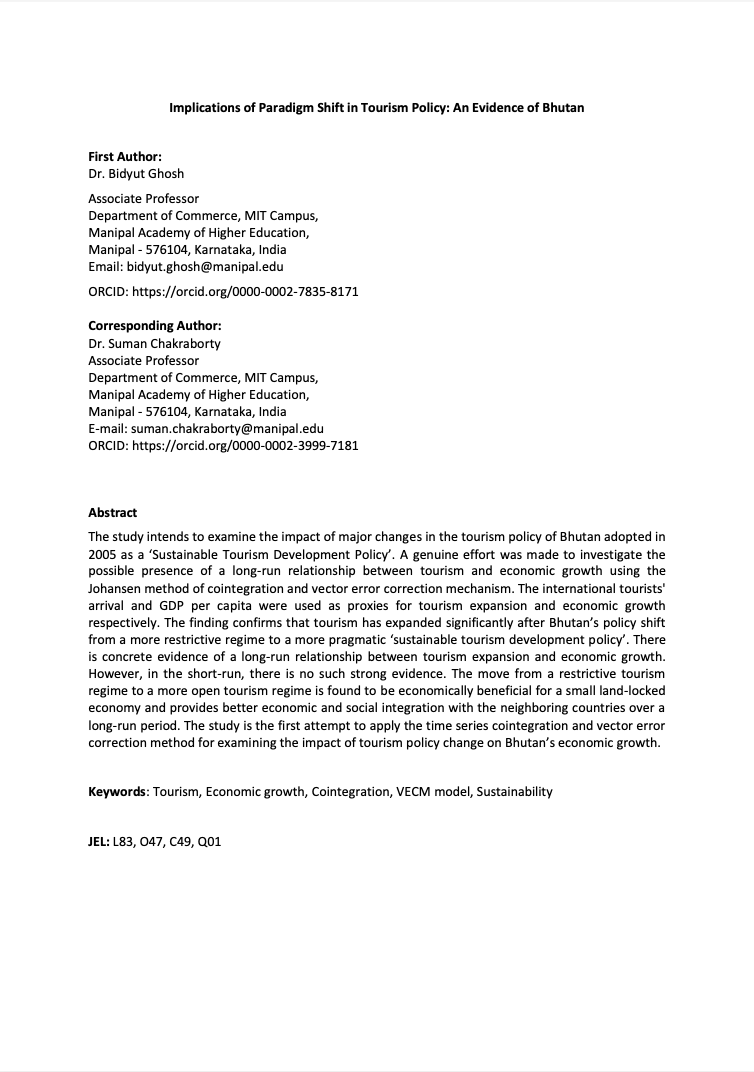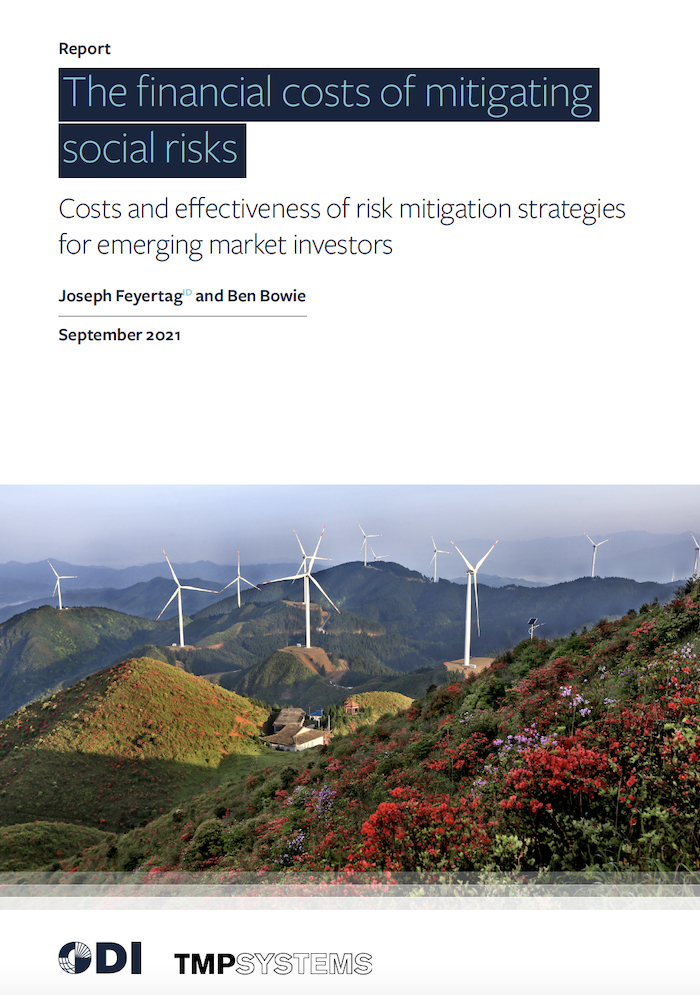government
AGROVOC URI: http://aims.fao.org/aos/agrovoc/c_11230
Can multi-stakeholder forums influence good governance in communal forest management? Lessons from two case studies in Ethiopia
HIGHLIGHTS
Land Portal Annual Report 2020
Long-term, sustainable and responsible ways to access and share data are fundamental to all efforts to support sustainable development and particularly salient to improving land governance and securing land rights for landless and vulnerable people. The COVID-19 pandemic has unequivocally demonstrated that the need for land rights has never been greater, as governments have shut down land administration systems and rolled back regulations protecting vulnerable communities.
History and Politics of Land Reforms in Pakistan: A Case Study of Zulfikar Ali Bhutto Era
Zulfikar Ali Bhutto emerged as the populist leader in the elections of 1970 with his Pakistan People’s Party established in 1967. Bhutto had worked in Ayub Khan’s cabinet for a long time and he knew the weaknesses of incumbent government. Having established his party, he challenged the policies of Ayub government and pioneered the movement for the downfall of Ayub regime. The elections of 1970 yielded polarized electoral mandate in which Awami League won thumping majority in East Pakistan while Pakistan People’s Party outdid rivals in the West Pakistan.
BTI 2020 Country Report Nepal
The last two years have been a period of rebound and cautious optimism in Nepal. After having been hit by two large earthquakes in 2015 that killed over 9,000 people and rendered many more homeless, and having suffered through a long, tortuous constituent assembly process that finally resulted in a new constitution, the country has seen progress on political and economic fronts in the recent past. Governance, however, remains an issue.
Where Bottom-Up and Top-Down Meet: Challenges in Shaping Sustainable & Scalable Land Interventions
LAND-at-scale is a land governance support program for developing countries from the Ministry of Foreign Affairs of the Netherlands, which was launched in 2019. The aim of the program is to directly strengthen essential land governance components for men, women and youth that have the potential to contribute to structural, just, sustainable and inclusive change at scale in lower- and middle-income countries/regions/landscapes. The program is designed to scale successful land governance initiatives and to generate and disseminate lessons learned to facilitate further scaling.
Cambodia’s Unofficial Regime of Extraction: Illicit Logging in the Shadow of Transnational Governance and Investment
Cambodia has recently demonstrated one of the highest rates of deforestation in the world. While scholars have long explored the drivers of tropical forest loss, the case of Cambodia offers particular insights into the role of the state where transnational governance and regional integration are increasingly the norm. Given the significant role logging rents play in Cambodia’s post-conflict state formation, this article explores the contemporary regime and its ongoing codependent relationship with forested land.
BTI 2020 Country Report: Bhutan
Bhutan’s democracy consolidated further following the third elections to National Council and National Assembly in 2018. In the primary round of National Assembly elections, voters favored a newly established third party, Druk Nyamrup Tshogpa (DNT), followed by the opposition in the last parliament, Druk Phuensum Tshogpa (DPT). The incumbent People’s Democratic Party (PDP) failed to advance to the general round.
Survey of Country Gender Profile (Kingdom of Bhutan)
International aid communities have recognized women’s participation in development and the improvement of women’s status in the developing countries as a key issue since the 1960s, and the concept of “Women in Development (WID)” has been emphasised as a development agenda in the 1970s. In the 1980s, with the newly proposed concept of “Gender and Development (GAD)”, an effort for “gender mainstreaming” has been regarded as an effective mean for firmly practicing the GAD approach in the international community.
Implications of Paradigm Shift in Tourism Policy : An Evidence of Bhutan
The study intends to examine the impact of major changes in the tourism policy of Bhutan adopted in 2005 as a ‘Sustainable Tourism Development Policy’. A genuine effort was made to investigate the possible presence of a long-run relationship between tourism and economic growth using the Johansen method of cointegration and vector error correction mechanism. The international tourists' arrival and GDP per capita were used as proxies for tourism expansion and economic growth respectively.
The financial costs of mitigating social risks
This report assesses the costs and effectiveness of responsible investment practices in emerging market contexts. Its results make the business case for investments in social risk mitigation and avoidance practices. Such practices include community engagement efforts, impact assessments and the establishment of grievance resolution mechanisms. Implemented correctly, responsible investment practices engender confidence and trust between investors and local communities, which secures social buy-in and mitigates the financial risks associated with disputes.
Improving Governance of Tenure in Policy and Practice: A Conceptual Basis to Analyze Multi-Stakeholder Partnerships for Multi-Stakeholder Transformative Governance Illustrated with an Example from South Africa
Tenure governance is a complex and multi-dimensional issue that requires cross-sectoral and holistic approaches, gathering the resources, information and expert skills of a variety of actors while exploring innovative, polycentric multi-stakeholder governance arrangements to address collective action challenges. To do this, multi-stakeholder partnerships are formed where public and private partners pool their resources and competencies to address mutual goals more effectively.


